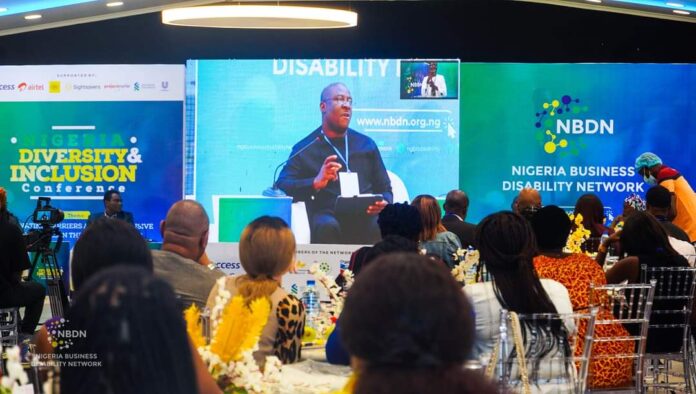Lagos, Nigeria – In a significant move towards fostering greater inclusivity in the Nigerian workforce, the Nigerian Business Disability Network (NBDN) announced the imminent launch of a groundbreaking mobile app aimed at bridging the employment gap between employers and the community of Persons with Disabilities (PWDs). This announcement was made by Omobolanle Victor-Laniyan, Chairperson of NBDN, during the Nigeria Diversity and Inclusion Conference 2024, held in Lagos on Wednesday.
Victor-Laniyan, who also serves as the Head of Sustainability at Access Corporation, revealed that the mobile app is in its final stages of development. She highlighted the acute challenges faced by Nigeria’s estimated 30 million PWDs, who often suffer marginalization due to factors such as gender and poverty. According to the Joint National Association of Persons with Disabilities, these barriers significantly limit their access to opportunities.
“The app will link PWDs to employers who are looking to employ talent from the community of PWDs. These employers can post vacancies and adverts there, search for potential candidates. Persons with disability on their part can utilize [the app] to see various vacancies and apply for jobs. There is also a training component which teaches people how to write their CVs properly,” Victor-Laniyan explained.
Addressing the broader issue of data inadequacies, she emphasized that the lack of reliable data should not hinder progress toward providing equal opportunities. “Whether it is 5 persons or a million people with disability, everyone has a right to equal opportunity. Regardless of the fact that we have data challenges in Nigeria, we are not going to stop our wait until we have the right data,” she asserted.
Victor-Laniyan further noted that the app’s development is being carried out in close collaboration with several PWD communities. These collaborations are informed by comprehensive surveys aimed at understanding the specific challenges faced by PWDs. “We are consistently developing innovative solutions to address them. Alone, we can do so little; together we can do so much,” she stated, underscoring the importance of collective effort.
The conference also featured a keynote address by Toyin Aderemi, Senior Global Advisor at Save the Children International, who emphasized the critical role of disability inclusion in corporate sustainability. Aderemi highlighted the business case for such inclusion, noting that the Discrimination Against Persons with Disabilities (Prohibition) Act 2018 mandates a 5 per cent quota for PWDs in public workplaces. Despite this legal requirement, she noted, many employers have yet to implement this provision.
“The unemployment rate among PWDs is double that of persons without disabilities, and women with disabilities face even greater challenges,” Aderemi pointed out. She further cited an estimate from the International Labour Organization (ILO) that the cost of disability-related exclusion ranges from $1.37 billion to $1.94 billion globally. She stressed that the inclusion and employment of PWDs could lead to increased innovation, flexibility, and productivity within organizations.
“Companies that lead in disability inclusion drive more revenue, net income, and profit,” Aderemi stated, making a compelling business case for the inclusion of PWDs in the workforce.
Themed “Disability Inclusion in Corporate Sustainability,” the conference called for significant organizational and operational changes to promote disability inclusion. Recommendations included the development of accessible infrastructure, the implementation of inclusive policies, and adherence to universal design principles to ensure that workplaces are accommodating to all employees.
The launch of the NBDN mobile app marks a pivotal step in addressing the employment challenges faced by PWDs in Nigeria. By connecting PWDs with potential employers and providing crucial training resources, the app aims to facilitate greater workforce participation among PWDs, thereby promoting inclusivity and equality in the labor market. As Nigeria continues to grapple with high unemployment rates, particularly among PWDs, such innovative solutions are critical in driving the nation towards a more inclusive and equitable future.


